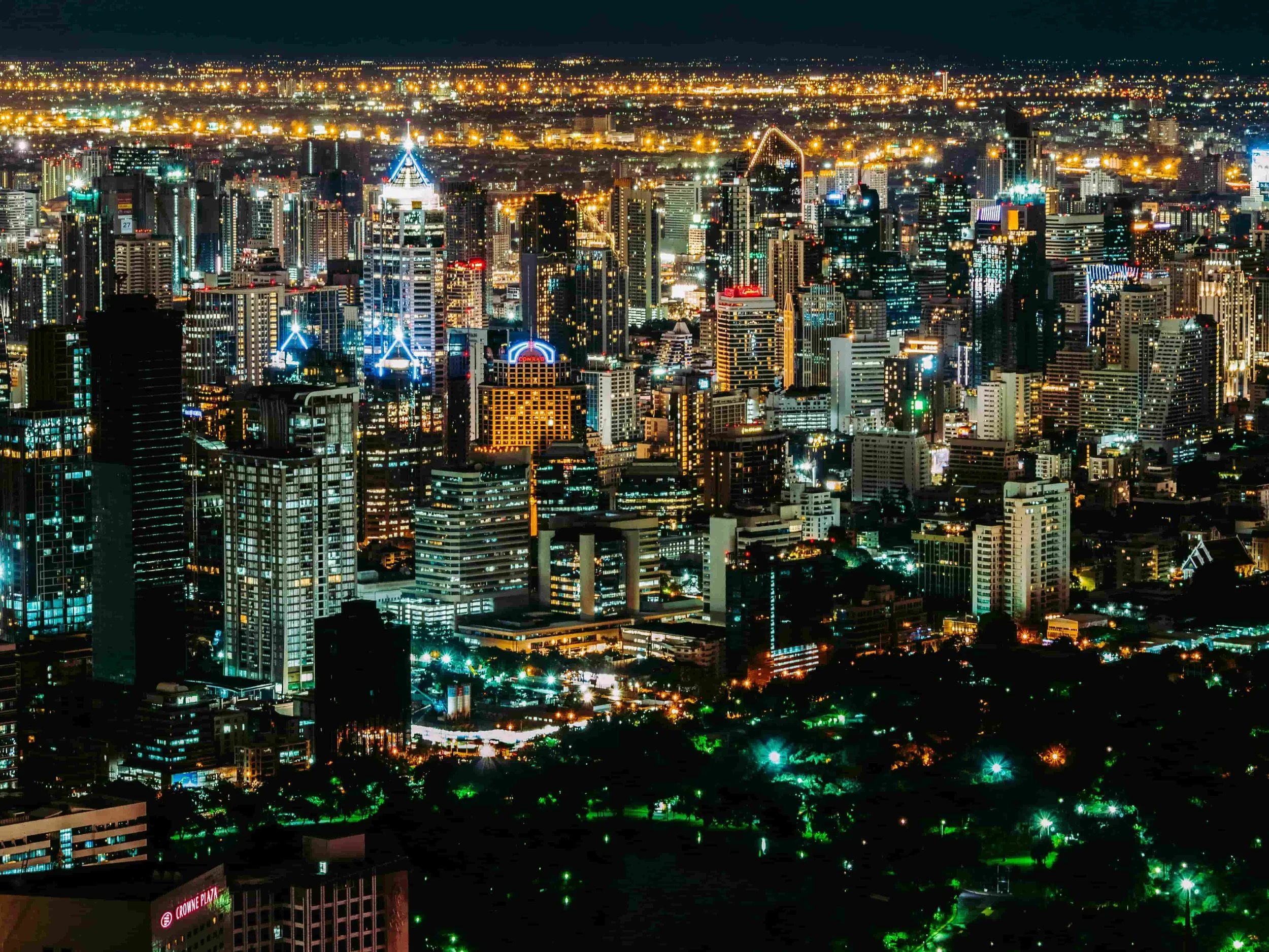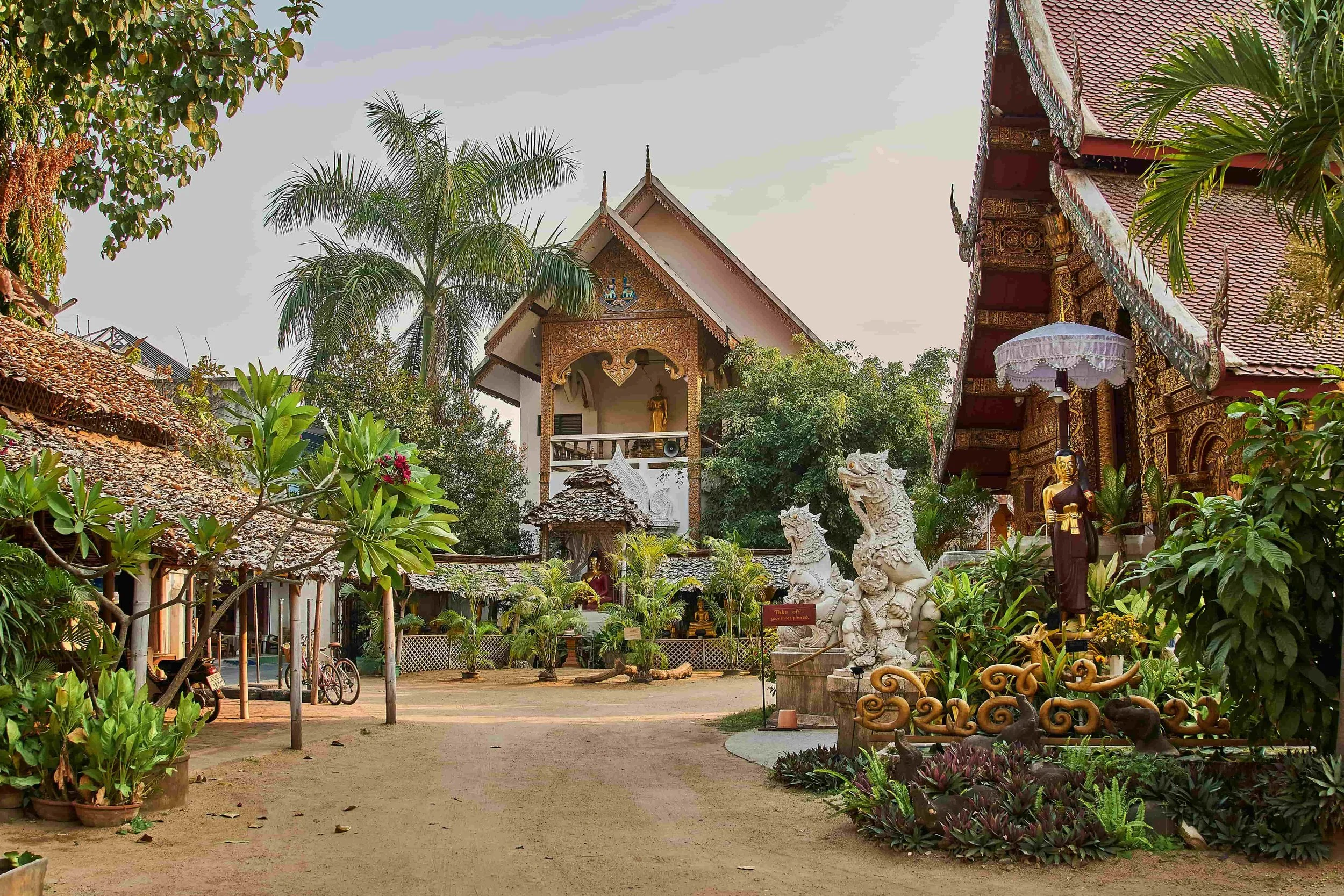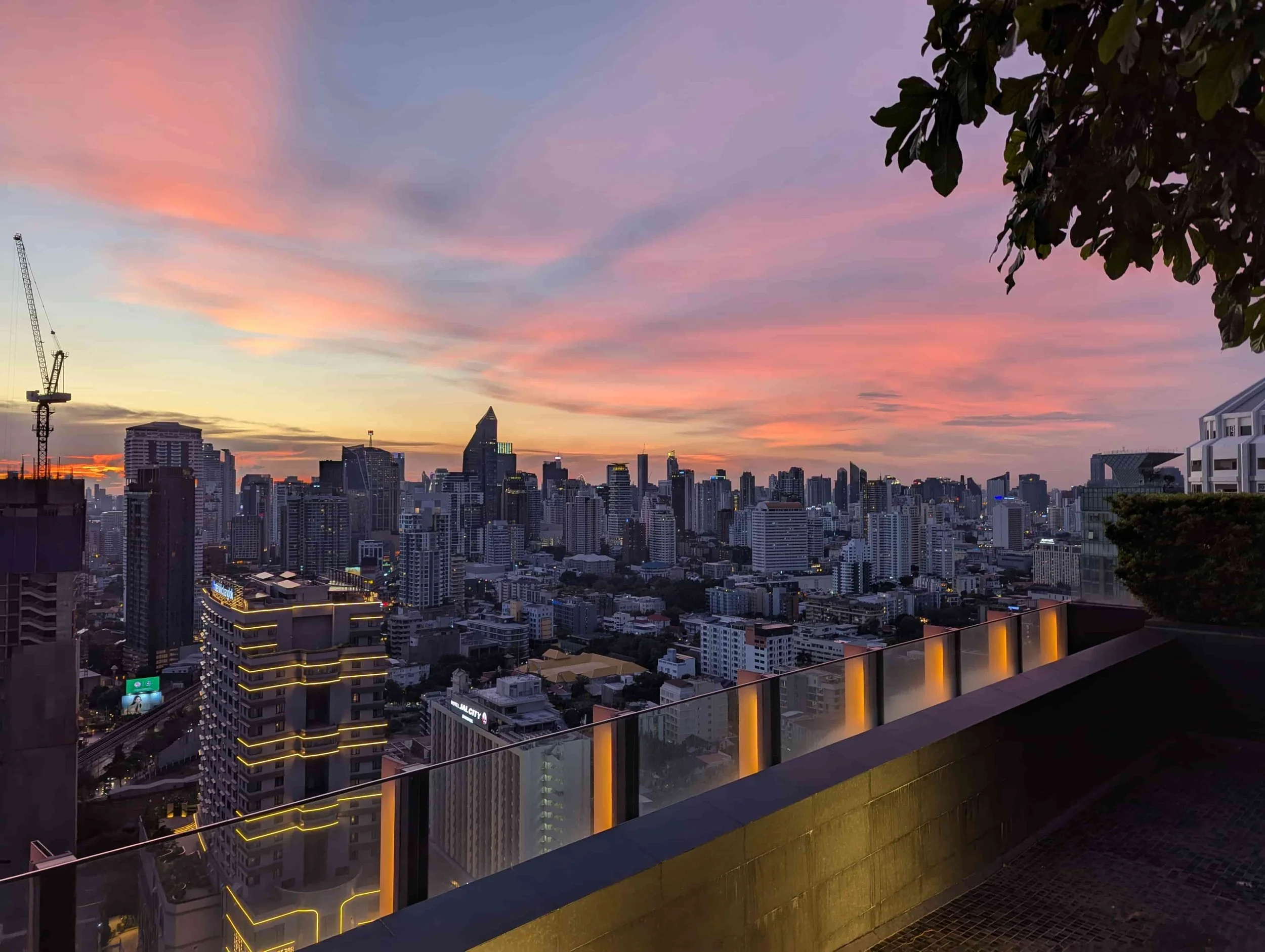How To Move To Thailand
In 2025, I relocated to Bangkok, Thailand from Valencia, Spain. There are a few reasons why I decided to move, you can check out my Youtube video or this blog post.
So, I wanted to write this blog post to share my experiences and give you some tips on what to expect; whether you’re thinking of moving to Thailand or are already actively planning your move!
Just a note that this blog post is more geared towards people that are digital nomads or remote workers, as I’m sharing my experience on how I moved to Thailand as a remote worker:)
Quicklinks:
Where in Thailand do you want to move to?
Of course, the first thing you need to ask yourself, is where do you want to live in Thailand? There are many options and different places offer different things.
Here are just a few options that I know most foreigners/digital nomads would consider:
Bangkok
If you’re a city person, then Bangkok would probably be the best option for you! Depending on where you live in Bangkok though, be mindful that it can be more expensive than most other places in Thailand. Especially Thonglor, Prom Phong, Ekkamai, Sathorn and Silom are more expensive than other areas in Bangkok.
Chiang Mai
Chiang Mai is the second largest city in Thailand and well known for its popularity within the digital nomad community. It is surrounded by a lot of nature parks that many people frequent for hikes or a long weekend in nature.
Chiang Mai is also considerably cheaper than Bangkok.
Islands such as Koh Samui, Phuket and similar
If you are more into the island life, then there are many options in Thailand. Each island has their own characteristics and personality. I understand that a lot of foreigners/digital nomads have settled on Koh Samui as well as Phuket, which is the largest island. There are also many digital nomads on Koh Phangan and Koh Lanta, but those are quite often staying for a short term on the island.
Determine the Visa you are eligible for
There are various visa options for Thailand and it depends a bit per situation which one you’re eligible for.
DTV visa
For most remote workers/digital nomads, the DTV visa would be the best option.
The DTV is a visa made for remote workers and students, and lets you stay for up to 5 years. It costs around 300$ and in the case of a remote worker, you need to show that you have at least 500,000 TBH in your bank account (around 14,000 euros) as well as proof that you can do your job remotely.
💡 You can read here my full blog post on the Destination Thailand Visa.
Thai Privilege Visa
Another long term option is getting the Elite Thai Visa - or now called Thailand Privilege visa. There are different ‘tiers’ that you can choose from (5 years to 20 years), and the longer the visa type the more expensive it gets.
The 5 year option is about 20,000 USD, which is quite pricey, especially compared to the DTV visa. However, you get some more benefits out of it, such as fast-track at immigration, healthcare benefits and discounts at hotels and apartments.
Check out more information on this website.
Finding an apartment
Short term
If you want to stay in Thailand more short term (i.e. 1-6 months) then probably Airbnb would be the best option. Airbnb in Thailand is illegal for stays under 30 days, so be mindful of that! But anything longer than 30 days is fine, and you can find decently priced accommodations on Airbnb.
Another great option is Booking.com, as they also have many aparthotels for a cheaper price, especially if you want to stay less than a month.
Long term (1 year lease or more)
If you want to stay in Thailand longer term (i.e. more than a year), then getting a 1-year rental contract would be the best option. Typically, you need to pay 2 months deposit as well as the first month of rent. It is also possible to get a 6-month contract I have seen, but probably the monthly rental price would be higher.
If you move to Bangkok, there is an abundance of condo’s available, at every price level. A great tactic is to post on the Bangkok Condo search Facebook group and soon enough, a lot of agents will contact you with available units. This is how we found our condo!
Another tactic is check out different condo’s on Google maps in the areas that you’re interested in. Once you’ve found the name, check on websites like DD Property and contact an agent who is responsible for a listing to see if it’s available or if anything else is available. Keep in mind that the properties listed on the websites are probably not available - but the agents may have other similar listing in that particular condo. It’s also better to contact them via Line app, because they don’t always Whatsapp, but it depends on the agent and/or agency.
Good to know about renting
You need to pay the electricity bill yourself every month - you can do this in any 7 eleven for instance
Water is also seperate, which I pay to the condo directly, but I think it depends per condo and/or rental agreement
Internet is usually separate, but is easily installed and is quite cheap. Internet is one of the fastest I’ve seen in the world.
Many condo’s have facilities such as pools, gyms, and coworking spaces. These are usually included in the rental price.
Cost of living
The cost of living in Thailand is in many ways, much cheaper than European countries or the US/Canada.
However, you can make your life as expensive as you want: There are a lot of options for all different price ranges.
Monthly rent for a 1-bedroom apartment is around 400 - 800 euros, depending on the condo and its amenities. And of course, this also depends on the city and area you’re staying in. Bangkok is more expensive than Chiang Mai for instance.
A meal can be anywhere between 2 - 10 euros, depending where you get it or what you order.
Groceries at the local supermarket are fairly cheap, but if you go to a more international supermarket (Gourmet Market, Tops) the prices are significantly higher, as they sell mostly imported food products.
Transportation is also pretty cheap - especially if you use public transportation (in Bangkok), but also when you use ride-hailing apps and mototaxi’s.
Banking
Bank account
Opening a Thai bank account is easy - provided you have a work permit in Thailand. However, for myself, as I am on on the DTV visa, which is deemed a ‘tourist’ visa officially, it is much harder to open a bank account. I am still trying currently - but I heard and read that depending on where you go and which branch or manager you talk to, you may be able to open a bank account.
I guess this is also the reality of moving to a developing country, where not everything might work as seamless as in more developed countries. There are pros and cons for every country of course:
Health insurance
When you move to a different country you need to make sure you have a (private) health insurance.
As an (occasional) digital nomad, I do travel quite extensively, so for me it’s also important that I am covered in other countries as well. My go-to insurance is SafetyWing, which has a policy that is a combination of health and travel insurance.
You can read more about this insurance on this blog post the cost is about 150 USD per month which I think is pretty decent for what you get.
Community in Thailand
Finding like-minded people to hang out with and make friends is always hard when moving to a new country. However, I feel like because there are so many people moving in Thailand, it is also fairly easy to get to know people.
Here are some resources and links that I’ve used myself as well to find and connect with people in Thailand:
Meetups
There are many meet-ups and events happening all over Thailand which makes it quite easy to meet other people.
Especially in Bangkok, there are many meet-up groups and Facebook groups that organise events for both foreigners and locals.
Here are just a few examples for Bangkok:
Bangkok Expat Women - a group of women that organises networking events among women
Sabai Run club - a running club that meets every weekend in the park to run together
Timeleft - this is an app that organises a dinner with 5 other random people that have signed up every Wednesday and Friday evening at a random location in different parts of the world.
Other Tips
Useful Apps
Grab - For food delivery, for transport; Grab is the most popular delivery/transportation app.
Bolt - Another ride hailing app. I find it sometimes a bit faster than Grab, so apparently Grab vets their drivers while Bolt doesn’t
Muuvmi - This is an app that you can use to book an electric tuktuk. This comes in handy if you want to move inside the streets of a given neighbourhood. It’s quite cheap and works really well!
Moreta - If you have a US Bank Account is app is super handy because it let’s you pay with a QR scanner, which a lot of smaller/medium businesses in Thailand have.
Line app - Line is the most popular messaging app in Thailand, and you can also do payments with it. Most locals and businesses use this app, and it’s handy to message restaurants and spa’s for instance, to make reservations.
Other Useful Tips
Cash withdrawals
If you’re out of cash, then don’t get a cash withdrawal at the ATM - go to an actual bank branch and ask for a cash withdrawal. You will need to show your passport and can get cash without the ridiculous 6-8 euros ATM fee.
Local Simcard
It’s useful to get a Thai number, because you will need it for some services and just makes life easier. I would recommend AIS as they have the best network coverage and better customer support. Just go to a local branch and get a phone number and data package - they can also turn the physical simcard into an eSim one, in case you want to keep your home phone number. With AIS, you can also easily top up any data, or call plan via their AIS app, which is also available in English.
Rabbit Card for the BTS in Bangkok
To use the BTS (Skytrain in Bangkok) you should get a Rabbit card that you can easily top up. You can get the Rabbit card at any kiosk at a BTS station - just make sure to take your passport with you. If you have Line Payments activated (on the line app) you can even connect your Rabbit card to your Line payments app, and you don’t even need to top up the Rabbit card anymore, which is super handy!
Disclaimer: Some of the links in this article are affiliate links. This means that, if you buy through my links, I may earn a small commission that helps me create helpful content for the blog and it won’t cost you anything extra either, so it’s a win-win! I only recommend products if I think they will add value, so thanks for supporting Things Nomads Do!





